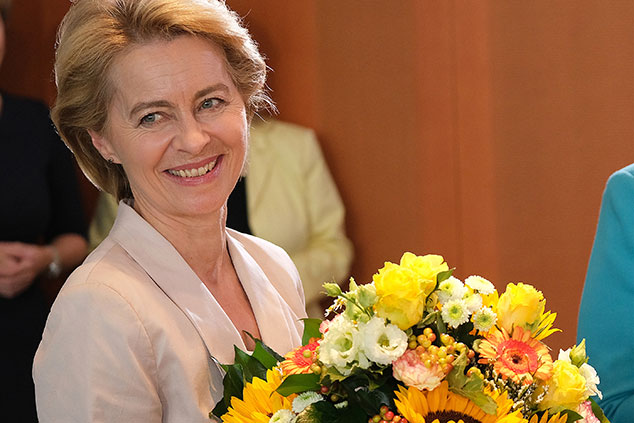
The role, generally seen as the most important job in the EU, puts her in charge of the Commission, which manages the EU’s day-to-day affairs and proposes legislation. But the narrowness of her victory, and the fact that it depended on a last minute change of heart by MEPs from the hard-right ruling parties in Poland and Hungary, means she faces a difficult task.
Von der Leyen’s “razor-thin” victory is a win for national governments in their fight for control of the Commission, says Lionel Laurent for Bloomberg. The appointment of Jean-Claude Juncker five years ago appeared to set a precedent that the largest grouping in the European Parliament would get to nominate the president. But the decision to appoint Von der Leyen, previously Germany’s defence minister, after closed-door negotiations between national leaders, suggests “the pendulum has swung back”.
Von der Leyen’s policy promises on environmental issues, social policy and gender equality may have won over enough sceptics in the socialist, green and liberal camps for her to scrape through, say Alex Barker and Mehreen Khan in the Financial Times, but it also alienated many of those in her own centre-right party, “dozens” of whom voted against her. This doesn’t bode well for her chances of getting the proposals through a highly fragmented Parliament.
Still, a majority remains a majority, says Politico. Even if populists and eurosceptics oppose her proposals, she may still get much of her agenda through with the support of the greens she wooed at the last minute. It was “the most intense two weeks of my political life”, she told reporters after her victory. A still tougher road lies ahead.